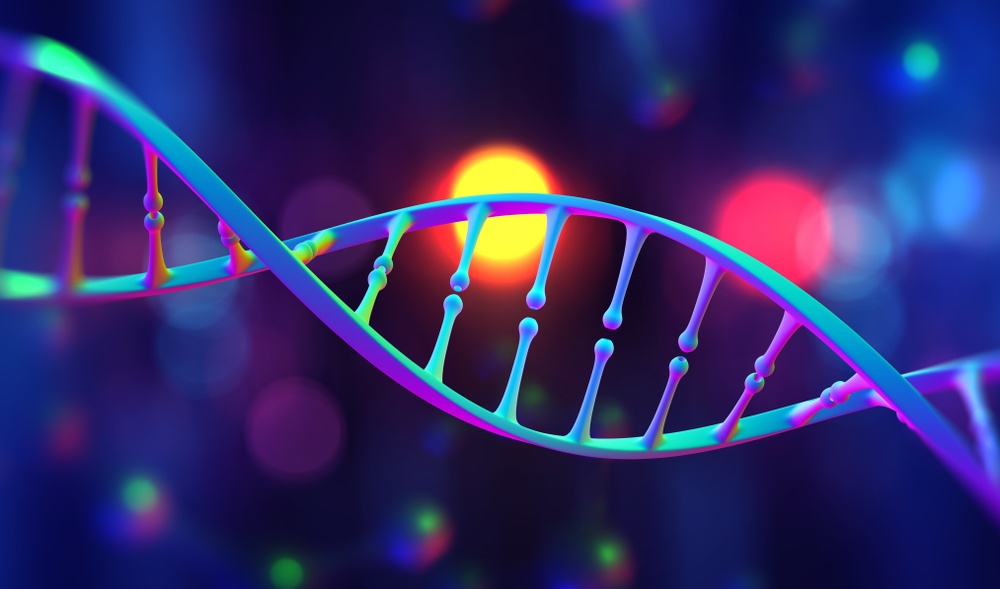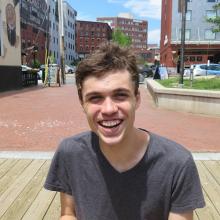A Bacterial Enzyme That Copies DNA Might Make More Mistakes in Zero Gravity, Study Finds

Yurchanka Siarhei via Shutterstock
(Inside Science) -- An enzyme in the bacterium E. coli made more errors copying synthetic DNA when exposed to zero gravity than the same enzyme did in normal gravity, a recent study finds.
The paper raises the possibility that some enzymes work differently in space compared to on Earth. "It gives us an idea that enzymes, like polymerases or others that are involved in maintaining the integrity of our DNA, may be influenced by spaceflight," said Susan Bailey, a radiation cancer biologist at Colorado State University in Fort Collins who has studied DNA damage caused by space radiation and did not contribute to the new paper.
Aaron Rosenstein, lead author of the paper and a bioengineering graduate student at the University of Toronto, said the finding "warrants further investigation into other enzymes that are involved in crucial pathways that are inherent to life and survival."
Scientists know that spending long periods of time in space can affect astronauts' physiology and cause health problems. Microgravity can cause muscle atrophy, a loss of bone density, and vision problems. It can also cause the brain and cerebrospinal fluid to shift, and it might be linked to brain damage.
While in space, astronauts are also exposed to radiation from the sun and distant galaxies. "Radiation kind of acts like a bowling ball, and the DNA is the bowling pins," said Rosenstein. "These particles move so fast that they break DNA apart or they cause mutations through all these different mechanisms." This damage to DNA can potentially put astronauts at increased risk for cancer and degenerative diseases, said Bailey.
Rosenstein said it's less clear what effect, if any, microgravity might have on DNA. He studies DNA polymerases, a class of enzymes that copy DNA and repair damage. Polymerases read the order in which the four types of nucleotide bases are arranged on the original strand of DNA and place the matching base on the corresponding section of the new strand. But these polymerases aren't perfect, so some have proofreading enzymes attached that double-check their work and note where they've made a mistake.
While he was a master's student at Queen's University in Kingston, Ontario, Rosenstein wanted to test whether polymerases might make mistakes more or less frequently in microgravity, which could have implications for how radiation damage is repaired in space. Some experiments studying microgravity are conducted in space at sites such as the International Space Station. For Rosenstein, it was easier logistically to run his experiment closer to Earth, aboard a type of plane nicknamed the "vomit comet" that achieves zero gravity by performing a series of ascents and dives in quick succession. Its contents experience a brief, 20-second period of weightlessness as the plane crests the top of its parabolic flight path 10,000 feet above Earth's surface.
Aboard the plane, Rosenstein was tethered to his seat, with his laptop and the payload he engineered to house the experiment in front of him. When the plane reached zero gravity, Rosenstein used a clicker to prompt robotic instruments to inject a polymerase found in E. coli into a mixture holding synthetic single-stranded DNA. As the plane left zero gravity, he injected another mixture to stop the reaction.
Rosenstein said that experiencing zero gravity was a little bit like going over the top of a rollercoaster. "Your brain, at least initially, is telling you 'Something is wrong here,'" he said. "'We're not really sure what this is, but we don't like it.'"
Back on Earth, the data showed that the polymerase with the proofreader attached made slightly more errors aboard the vomit comet than when the plane was in normal gravity, though this effect was not always statistically significant. The polymerase made even more mistakes when the proofreading enzyme wasn't attached (some polymerases don't have proofreaders), suggesting to Rosenstein that the proofreader was able to correct some of the additional mistakes made by the copying part. The research was published last November in the journal Frontiers in Cell and Developmental Biology.
Bailey said the study doesn't have direct implications for astronaut health during long-duration spaceflight. Since the experiment uses a polymerase found in bacteria and the DNA was exposed to zero gravity for only 20 seconds, the research is "really far removed from what the astronauts are actually experiencing," she said. The E. coli polymerase used in the experiment is part of a family of polymerases that account for only a few of the 14 known DNA polymerases humans have, Rosenstein said.
Human cells also have other mechanisms to detect errors. "There's a whole big slew of mismatch repair processes, like big, big pathways, that are in place to stop this from occurring," said Rosenstein. "There'd need to be multiple other follow-up studies to kind of prove this effect in human cells and to understand why this effect is or is not ultimately important."
He also added that "the major cause of mutations that we see in space is radiation."
But Bailey said that if some polymerases are affected by microgravity, that could be relevant to astronauts' telomeres, which are bits of DNA at the ends of chromosomes that are thought to be connected to human aging. A type of polymerase called telomerase copies telomeres, and Bailey has studied how spaceflight affects telomere length. "This paper gives some support to the idea that [telomerase activity] could be influenced by microgravity," she said.

